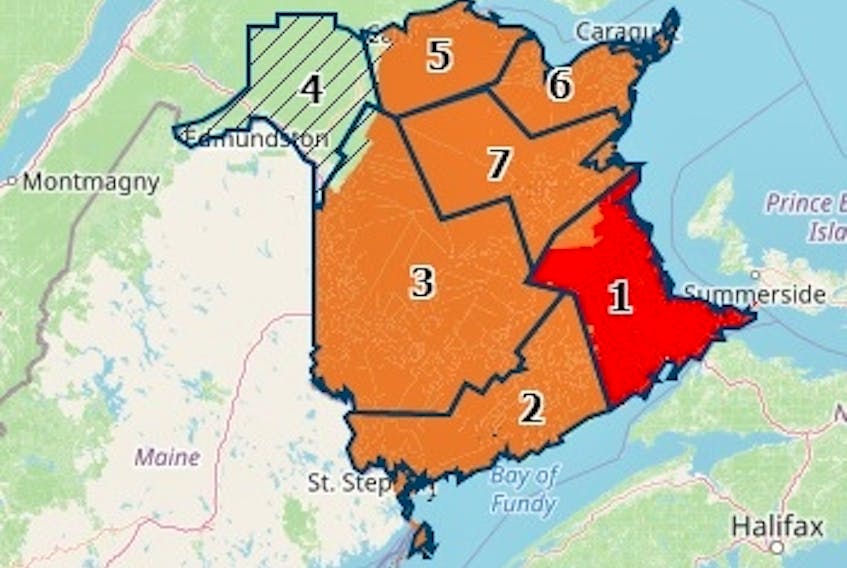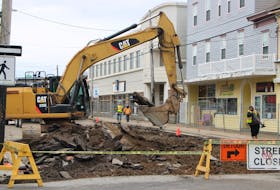For months, the Atlantic Bubble was the envy of the world in the midst of battling the COVID-19 virus, as well as a shining example of how to properly control the spread of the virus.
Of course, the bubble burst at the end of 2020, when the second wave hit. But while most of the Atlantic provinces have shown a slow-but-steady move towards recovery, New Brunswick's numbers kept going up.
University of Toronto professor Dr. David Fisman made headlines recently by describing the province as being on a 'knife's edge,' just as daily new cases were entering the double digits in New Brunswick.
The situation was evolving so rapidly, in fact, that Cathy Pelletier – the executive director of the Edmundston Chamber of Commerce (CCE) – said she could hardly keep track of what colour-coded level of the threat their provincial zone was designated as from day-to-day.
“We’re in Zone 4,” says Pelletier. “There are some people that are scared. The numbers are going up, and it goes into the places where old people live and in the workplace.”
As of Jan. 27, with more than 330 active cases, most of New Brunswick is designated orange; balancing concerns about COVID with the operation of businesses. Zone 1, which includes Moncton, is designated red with 95 active cases. Zone 4 – which includes the Edmundston, Grand Falls, and Kedgwick municipalities – is currently on lockdown. Zone 4 has the bulk of active cases in the province, at 153.
Zone 4 borders the United States, but Pelletier doubts that has much to do with the explosion of cases.
“It’s just a matter that, during the holidays, there were some that didn’t respect the regulations, and they gathered for some big parties,” she explains. “They just don’t believe that there is a virus that can kill people.”
Pelletier says that most businesses in the zone closed proactively before a lockdown issue was ever ordered.
“A lot of businesses had decided, by themselves, to close their doors to customers - restaurants, mainly - just to make sure to stop the spreading as quickly as possible," says Pelletier.
“They decided on their own to close their dining rooms, and just have take-out and delivery services available. That was done in the orange stage. We felt a movement of solidarity within the business [community].”
While some business owners did oppose closures, most were on the same page; after a year of dealing with COVID, most knew the temporary closure would mean staying open longer in the long run.
“With the numbers still going up, people were kind of… not waiting for it, but asking for it. You have to make some decisions and stop the spread as fast as we can, or we’re going to be in that situation for many months.”
Schools in the area are also well-weathered against interruptions from COVID.
Jennifer Read, director of communications for Anglophone West School District, wrote in a statement to SaltWire, “ASD-W staff is well-prepared to shift to distance learning when required. Teachers participated in professional learning at various points since June 2020, and have learned how to adopt and adapt online teaching and learning technologies in their classroom...A device-loaning program has been implemented to ensure all students have access to technology and helplines are available when students or staff run into technical difficulties.”
Pelletier says the CCE is currently putting together a list of businesses that are open with lockdown precautions, as well as a survey to business owners to better assess what help they need from the CCE.
She says that the general understanding – both in the business community and the community-at-large – is that the better they adhere to regulations now, the sooner things can get back to some sense of normalcy.
Get the latest updates and information on confirmed COVID-19 cases and labratory testing in New Brunswick:









